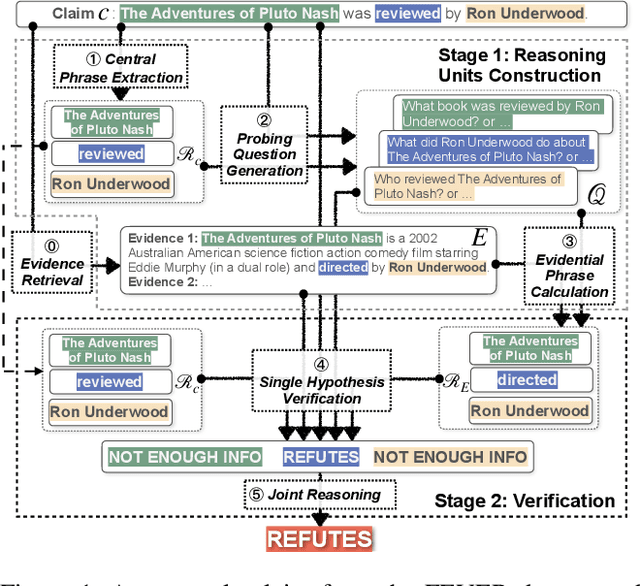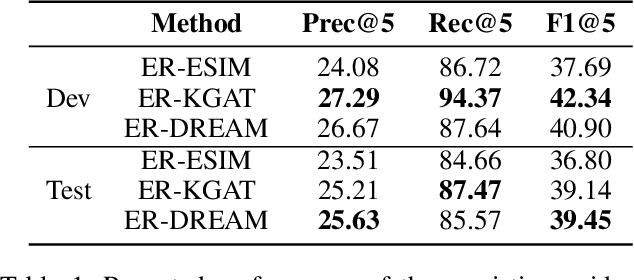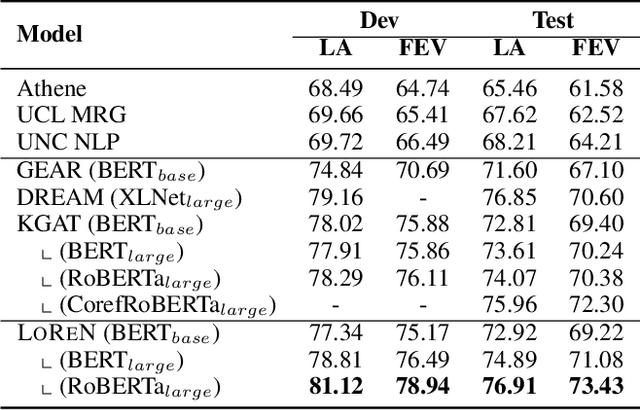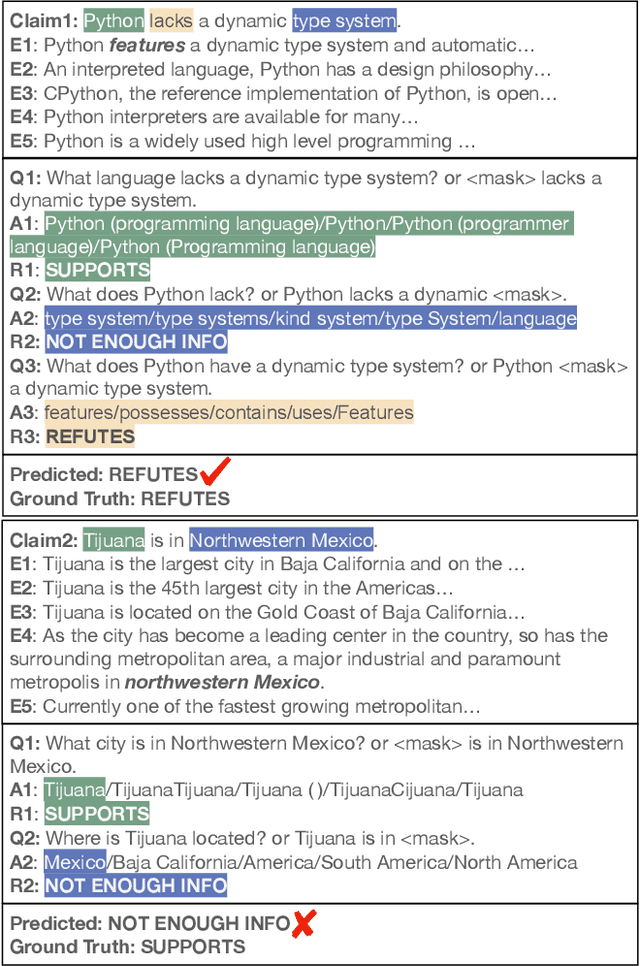LOREN: Logic Enhanced Neural Reasoning for Fact Verification
Paper and Code
Dec 25, 2020



Given a natural language statement, how to verify whether it is supported, refuted, or unknown according to a large-scale knowledge source like Wikipedia? Existing neural-network-based methods often regard a sentence as a whole. While we argue that it is beneficial to decompose a statement into multiple verifiable logical points. In this paper, we propose LOREN, a novel approach for fact verification that integrates both Logic guided Reasoning and Neural inference. The key insight of LOREN is that it decomposes a statement into multiple reasoning units around the central phrases. Instead of directly validating a single reasoning unit, LOREN turns it into a question-answering task and calculates the confidence of every single hypothesis using neural networks in the embedding space. They are aggregated to make a final prediction using a neural joint reasoner guided by a set of three-valued logic rules. LOREN enjoys the additional merit of interpretability -- it is easy to explain how it reaches certain results with intermediate results and why it makes mistakes. We evaluate LOREN on FEVER, a public benchmark for fact verification. Experiments show that our proposed LOREN outperforms other previously published methods and achieves 73.43% of the FEVER score.
 Add to Chrome
Add to Chrome Add to Firefox
Add to Firefox Add to Edge
Add to Edge